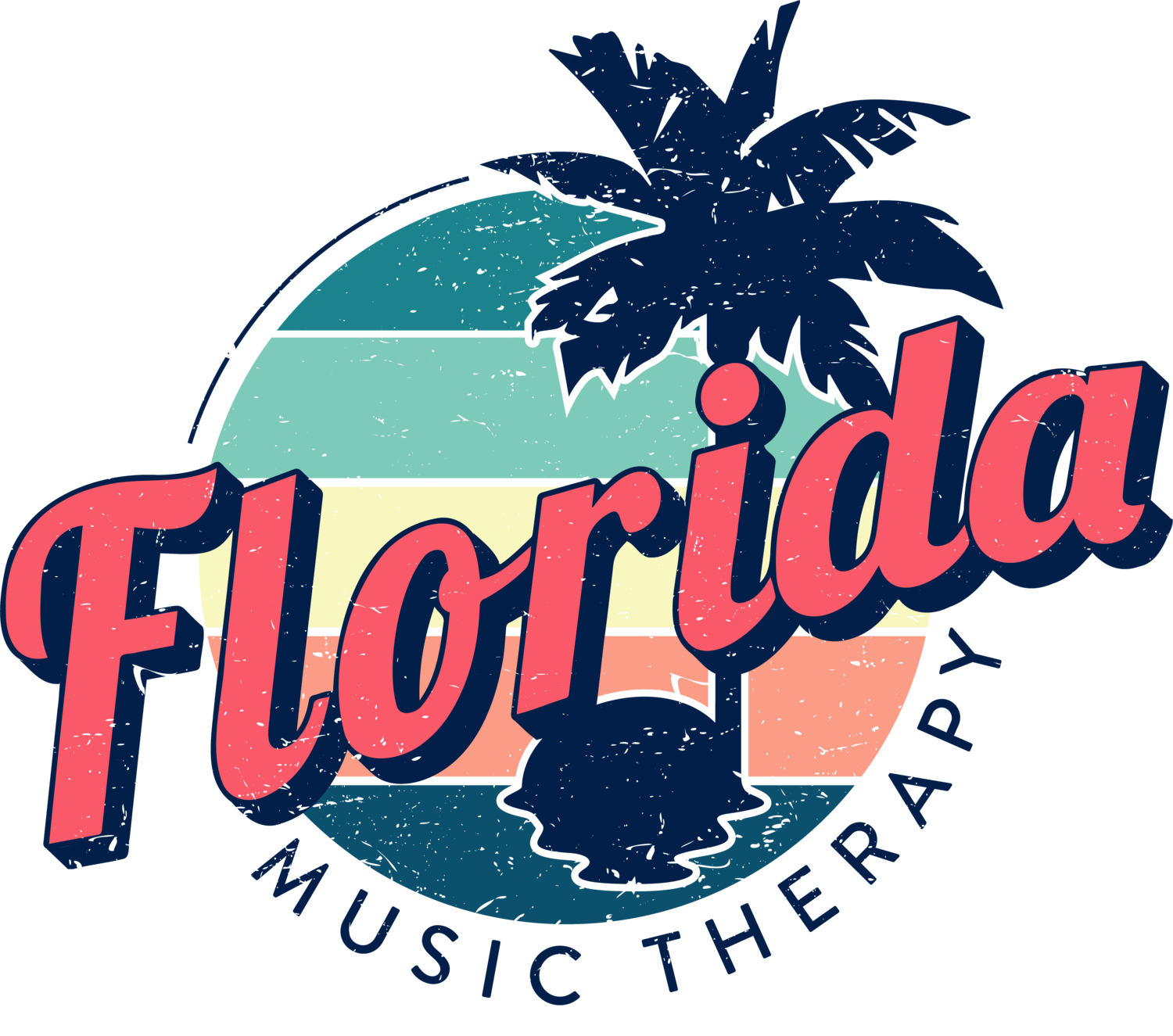Music Is For Everyone: Learn More About Community Music Therapy!
What is Music Is For Everyone?
Florida Music Therapy’s Community Music Therapy Group
Thursdays in February 5-6pm
The purpose of this Music Is For Everyone is to create a space for teens in our community of all abilities/disabilities to enjoy music with their musical peers.
Our group will be led by Ashley Uhland, a music therapist at Florida Music Therapy. Ashley recently graduated with her Equivalency in Music Therapy Certificate after teaching music in Brevard County for 16 years. You can read more about Ashley on our website!
In 2023, choir and orchestra director Lorie Wacaster realized that some of the teens that attended Holy Trinity Episcopal Academy’s concert were unable to receive group music experiences for themselves. When she enlisted the help of music therapist intern Ashley Uhland and special needs advocate and parent Tina Robbins, they began to develop the idea of a music group where teens from the TriM Music Honor Society can be peer mentors for teens that don’t have access to quality group music ensembles due to disability or medical needs.
Florida Music Therapy sponsored the group as a six week pro bono workshop and the teens loved it! Participants of all abilities were able to join together in various music activities including movement, improvisation, singing, drumming, song-writing, and relaxation techniques. The data collected from teen participants and parents after each session showed increased positive mood, growth in communication, and practice of positive social skills. All were excited to continue the group in the future.
Participant Feedback:
How do you feel after music today?
Good/Great/Amazing/Awesome: 46%
Happy/Joyful/Excited: 29%
Relaxed/Peaceful/Calm/Tired in a good way: 16%
Proud/Enlightened/Empowered/Blessed: 6%
Energetic/Inspired: 3%
What was your favorite part of the session?
Singing Specific Songs (Welcome, Disney, Greatest Show, Rainbow): 30%
Improvising/Composing: 30%
Drumming: 20%
Specific Instruments (Guitar/Tongue Drum/Bell): 11%
Playing music together/Being with my friends: 9%
What else do you want to tell your music therapist?
“This is so fun!”
“I really enjoyed this”
“I liked improvising”
“Loved the tongue drum”
“We should do more drumming”
“Very fun” “Liked the hello song”
“Great job, everything was good”
Parent Feedback:
“The workshop was an amazing experience for my special needs 23-year-old daughter. Wish it was around a long time ago.”
My teen’s favorite part: “socializing and feeling the music.” My favorite part: “seeing my daughter with other kids & so so happy!”
“It’s a unique opportunity for special needs teens to feel included in a musical group, be able to participate, and feel no pressure to perform for any reason other than joy.”
Interested in Music is for Everyone? Check out the flyer here or follow this link to register!
PREPARE to Learn More About Community Music Therapy!
Music is for Everyone is an example of community music therapy. Community music therapy builds on individual and community resources through collaborative music making.
In 2011 Stige and Aarø proposed the PREPARE acronym to highlight the seven key qualities of Community Music Therapy.
Participatory- The music therapist creates space to support open and flexible participation in sessions. Participants take part in the decision making and construction of group dynamics.
Resource-oriented- Community music therapy supports the use of the unique skills and qualities of each participant as important resources to the group. Participants bring distinct lived experiences and cultural backgrounds which come together to create the ultimate assortment of resources to be shared and utilized in sessions.
Ecological- Musical interactions that occur in sessions have the ability to spread and impact the greater community and society. Whether it is further sharing newly learned music or practicing social skills demonstrated during community music therapy, the influences last after the session ends and are spread further into the community.
Performative- The performative aspect of community music therapy refers to performances both during and outside of sessions. Although public performances may not be right for every group, the music therapist is able to adapt the performative quality of community music therapy to best suit the needs and abilities of the group. Post performance debriefs have proven beneficial for reflection and processing.
Activist- Music therapists providing community music therapy often become activists to bring resources to participants who may experience barriers in finding a sense of community. Furthermore, public performances through community music therapy allow individuals of diverse backgrounds and abilities to be seen and heard throughout the greater community which can help to shape a positive societal perception of the group members.
Reflective- The music therapist who facilitates community music therapy must show cultural awareness and humility. While acknowledging one’s own privilege the music therapist is able to participate in open dialogue with group members about cultural backgrounds and must reflect on how their own history and background may affect the group's dynamic.
Ethics-driven- Ethics are always a key quality of music therapy. Within community music therapy ethical considerations of human rights, social justice, and sustainability are highly regarded. There are more fluid boundaries in community music therapy that allow the music therapist to be a “professional” while also taking a step back when it is important for the group members' voices to be heard.
Stige, B., & Aarø, L. E. (2011). Invitation to community music therapy. New York: Routledge.
